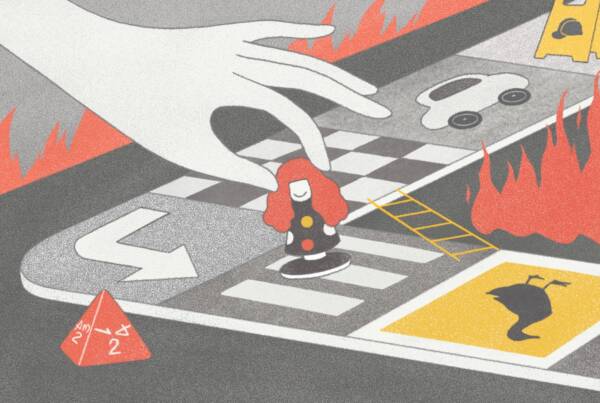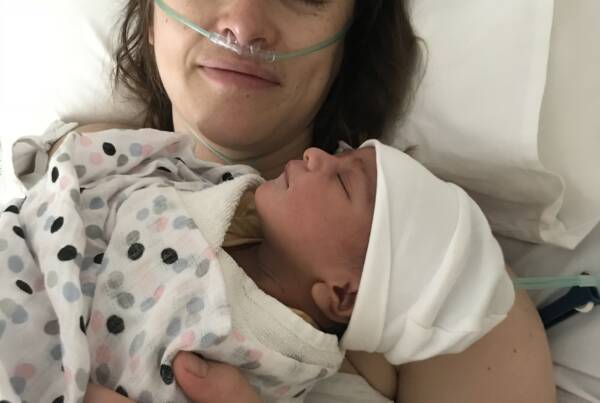Writing by Natalia Hodgins // photograph by Lux Graves
 At the start of 2020, I watched with the rest of the world as the coronavirus pandemic spread across the globe. Like many from the disability and chronic illness community, I anticipated there would be an influx of people joining our ranks. It didn’t take long to stumble across an article in The New York Times by American journalist Fiona Lowenstein detailing her experience as a 26-year-old living with long Covid. Since then, I’ve followed closely as this mass disabling event unfolds overseas.
At the start of 2020, I watched with the rest of the world as the coronavirus pandemic spread across the globe. Like many from the disability and chronic illness community, I anticipated there would be an influx of people joining our ranks. It didn’t take long to stumble across an article in The New York Times by American journalist Fiona Lowenstein detailing her experience as a 26-year-old living with long Covid. Since then, I’ve followed closely as this mass disabling event unfolds overseas.
Research suggests 10 – 30% of people who contract coronavirus will be affected by long Covid; defined as symptoms lasting two months or more. Being double vaccinated reduces your risk by half, symptoms vary in intensity and many people improve with time. But a portion of Covid long-haulers go on to develop prolonged and severe illness. And this still means, if every person in the world were to catch the virus, roughly 400 million people could experience long Covid. A phenomenal number to see in print.
As someone who lives with Myalgic Encephalomyelitis/ Chronic Fatigue Syndrome (ME/CFS) the pandemic has been like watching a train wreck in slow motion. In 2017, well before Covid-19 was a household name, I caught a mild virus while staying in a friend’s water-damaged home. This combination of infection and exposure to mould toxins destroyed my health in a heartbeat, leaving me with a myriad of daily symptoms. I was repeatedly told by doctors that I had a psychological, not a physical condition. The trauma of being disbelieved was almost more painful than the disease itself.
When I first became unwell, I was so immeasurably angry over everything that had been taken from me. I grieved for the future I’d lost and the things I loved that I was now too ill to do – travel, build a career, live independently. My rage was palpable, and I had nowhere to put it. It took years to recognise I was disabled, years to connect with the ME/CFS community and years more, to find my voice and use it. In contrast, the scale of people contracting long Covid means they found each other with relative ease. And they’ve been able to leverage their collective influence as physicians, journalists and researchers to agitate for change.
It seems unbelievable to me, as someone who was saddled with the misnomer ‘Chronic Fatigue Syndrome’, that it was a patient Elisa Perego, who named this disease. But the part that’s most profound, is how long Covid activists are showing the medical fraternity just how powerful lived experience can be. Through the Patient-Led Research Collaborative, they collected data and published their own research, informing policy decisions, influencing research funding and proving how critical it is for patient voices to be heard. I can’t overstate the power in this, given how desperately chronically ill patients have fought to have our experiences heard, and how unrelenting the medical establishment has been in ignoring us.
I watched in awe as the long Covid activist movement did all the things I longed to do when I first became unwell. Yes, they faced backlash but seeing their ability to organise and advocate has brought my anger back to the fore. I want to take on the world again, for choosing to forget people with ME/CFS, for giving us pennies for research, denying access to experimental treatment and refusing to provide basic medical care. It’s ironic that this pandemic, responsible for so much grief, could prove to be a turning point for those of us living with post-infectious disease.
To be clear; comparing the long Covid activist movement with ME/CFS is not equitable or fair. Where ME is a trickle of water, long Covid is a flash flood. Activists like Jen Brea, Alem Matthees, Julie Rehmeyer, Tom Kindlon and patient advocacy groups around the world, have spent years fighting for change. At last count 20 million people have ME but the disease has been heavily stigmatised for decades. When government and health officials couldn’t find a simple answer to the mystery illness afflicting 150 people living in Lake Tahoe in the 1980s, they branded it ‘yuppie flu’ and blamed patients for being ‘depressed menopausal women’. What makes long Covid so distressing is the same thing that gives it power – the sheer number of people becoming ill at once.
Interest in long Covid is drawing attention to ME/CFS and many of the most vocal activists have been purposeful in connecting the two. After being ignored for decades many ME patients feel conflicted; why did we need a global pandemic for people to care about our pain? Others are scared we’ll be left behind when researchers discover treatment for long Covid. For now, I don’t feel that same fear. Once you’ve lived the hell that is contested illness, you never forget the people who were there with you. It’s an experience that shakes you to your core. I see the long Covid activist movement bringing the chronic illness community along with it, and I understand the fire and fury that drives their work. They won’t stop until they get answers for their people, and it’s starting to feel like ‘their people’ includes me.






